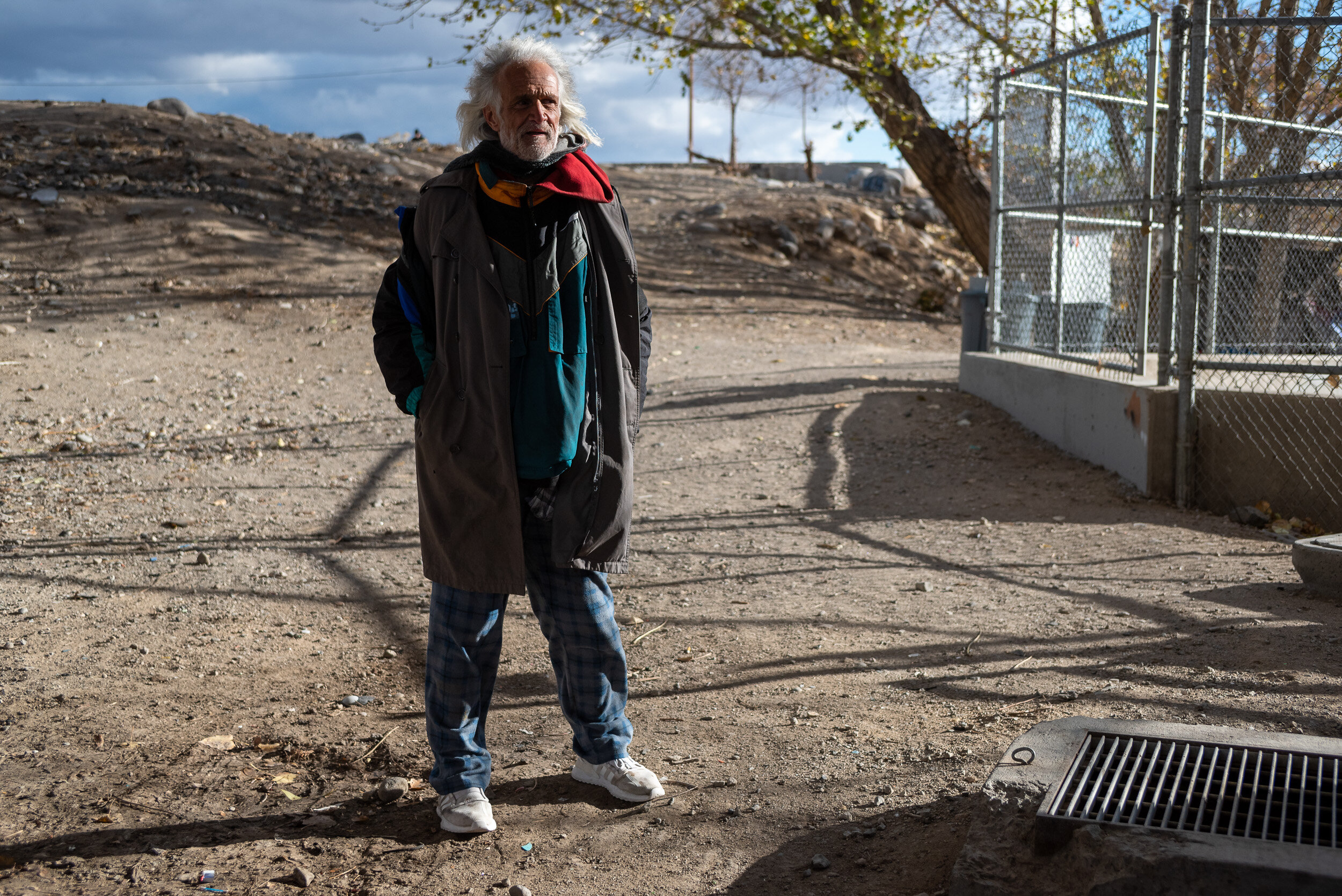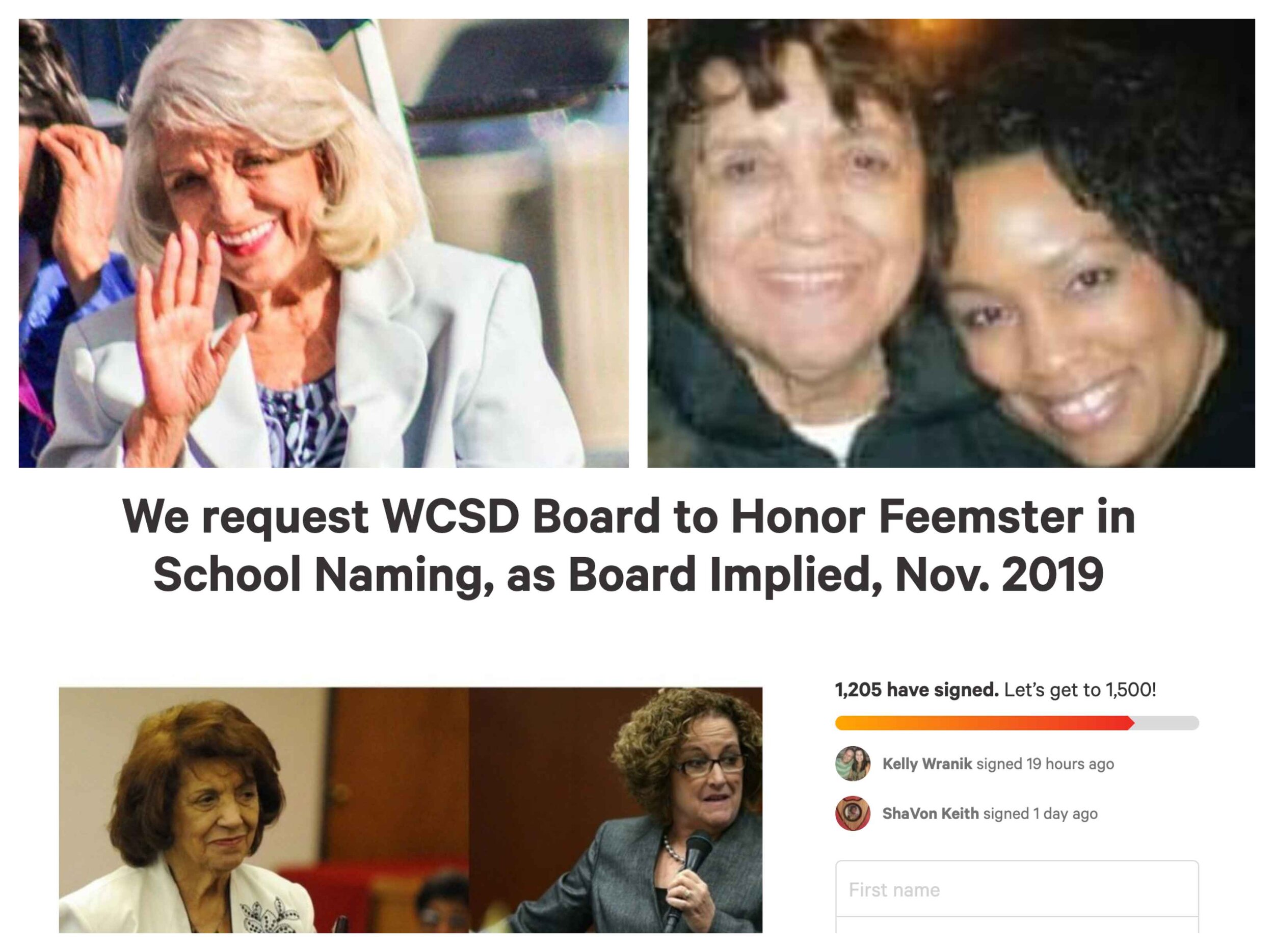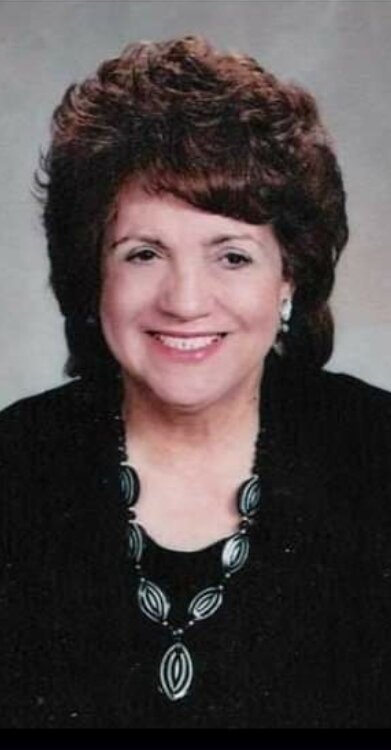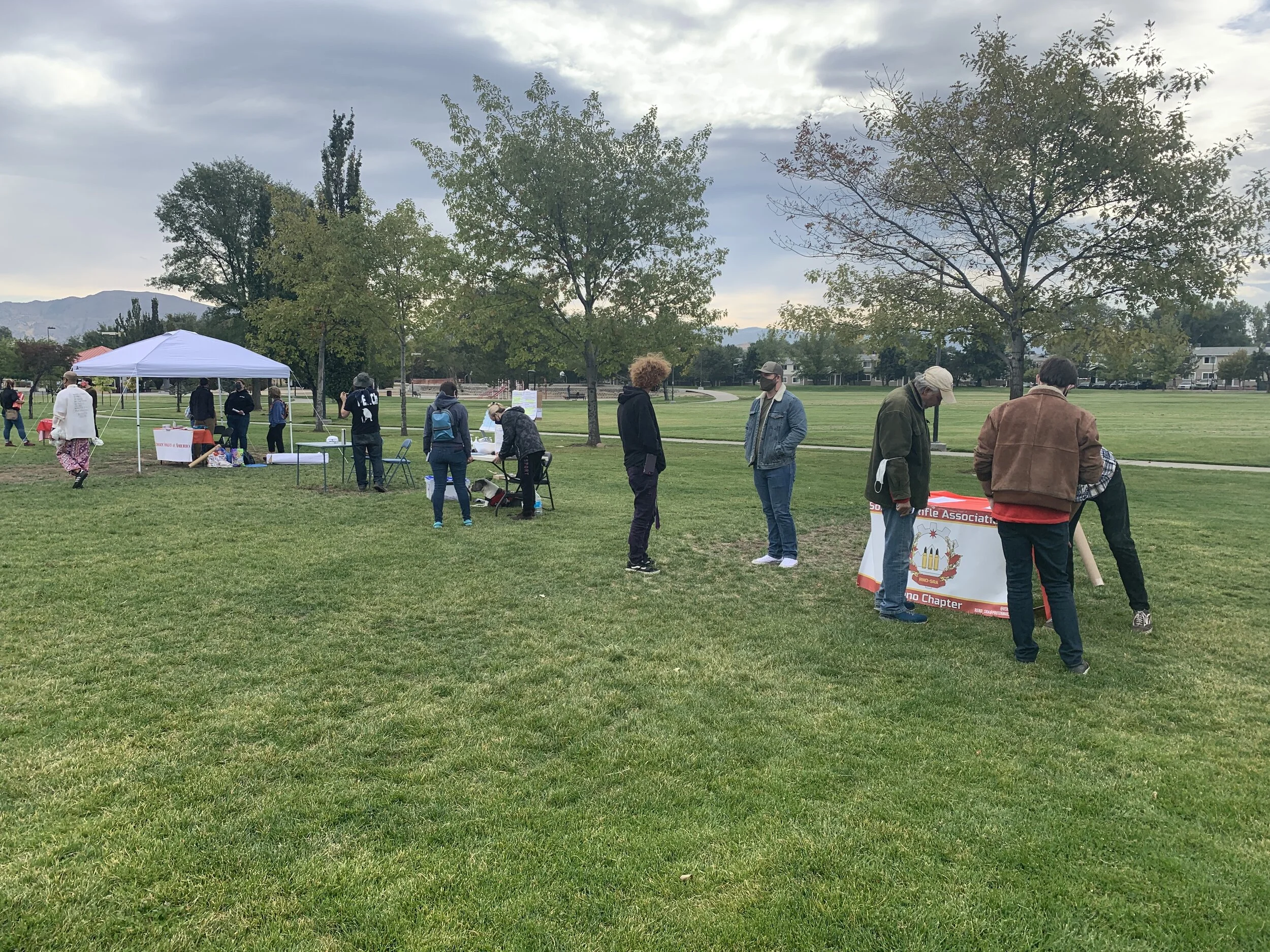On a windy day during Thanksgiving week, Charles, in his sixties, is living down by the river under the Wells Avenue overpass. Many tents are lined up along the river and railroad tracks. There’s a communal feel in the air. As the wind whips around us, Charles shares his story.
“I had a partner and stuff like that and then the rents went up,” he said. He says he has bounced back and forth between California and Reno. He has a good friend, a retired Los Angeles police officer, who helps him get his Social Security benefits. Charles says he is also able to get medical care despite his lack of housing.
The wind continues to spin. Charles says he’s had thoughts of going to Alameda County in the near future but expressed worry about the violence down there. He is starting to think that he may be better off staying here in Reno.
Charles is focused on staying safe from day to day. He is tech savvy and carries a cell phone to help him connect with resources he needs. He says he isn’t too concerned about the growing COVID-19 cases here in Washoe County. He says he is more concerned about the annual flu.
He sees the pandemic as a form of punishment for humans and said “it's not a lack of resources, it’s the misuse of the resources.”
He is a religious man with a background in Buddhism. “You're not going to find material solutions,” he explained.
When asked about shelters in Reno, he was unaware of the planned ‘super shelter’ for the Governor’s Bowl park.
“The Volunteers of America, they tried to connect me to the place [the homeless shelter],” he said. “They just try to usurp your basic rights because they think you're nobody.”
Charles was adamant that the shelters are not the place for him. He feels shelters tend to create more problems than what you get out of them. He says a police officer recently saved him. “Like she saved my life. I was really sick. They helped me out,” he remembers.
He says is grateful for people who take the time to stop and have a conversation and treat him like a human.
Charles is most thankful he says for “the mercy of the most high goddess and particularly, you know, the kindness of people that come through here.”























![“Hell yeah, [there’s enough resources for the homeless],” Rico said. “There's a river where you can catch fish and crawdads. But you have to learn how to catch some of it, but yeah, there's definitely enough resources by far. Definitely no jobs, tho…](https://images.squarespace-cdn.com/content/v1/5675d221cbced60a236e28b8/1601668749300-K67N8NIQJWLE87NDYX4U/rico+BeFunky-collage.jpg)


















![“All right, I think it's a good idea because we could use a new shelter that's more updated than the shelter we have,” Matt said. “[The current shelter] is sort of run-down and they don't really keep it up. So a new shelter would be a blessing,” he …](https://images.squarespace-cdn.com/content/v1/5675d221cbced60a236e28b8/1601409631082-C5NRAB3ZSVUF3SM9TQ1C/Screen+Shot+2020-09-29+at+1.00.08+PM.png)





![In order to stay at HopeSprings, Fegert said prospective residents will have to undergo an intense vetting process to ensure they will be a good fit for the community and its programs. “[Prospective residents] will go through some deep questionnaire…](https://images.squarespace-cdn.com/content/v1/5675d221cbced60a236e28b8/1602776227753-FH7H32XGOF9IN8PIGEPH/Fegert+%281%29.JPG)







![Nightingale took out a gun at the protest, but of the plastic kind to disperse bubbles of joy. “Sometimes we’ve gotten a lot of honks and support and in other places [it] generally tends to be kind of like a 50-50 kind of thing,” she said of public…](https://images.squarespace-cdn.com/content/v1/5675d221cbced60a236e28b8/1601928587739-39GRFGUYCPPMWUFBD367/20201002-OTR-Perch-BednarskiR-0885.jpg)




